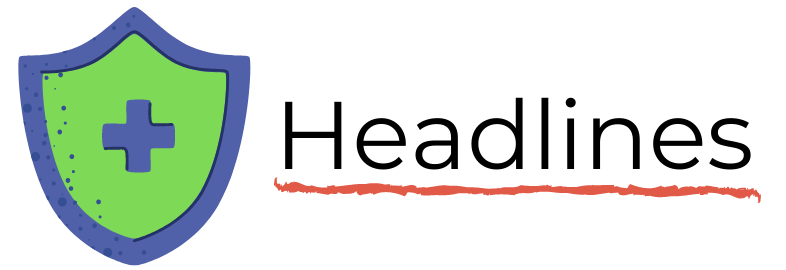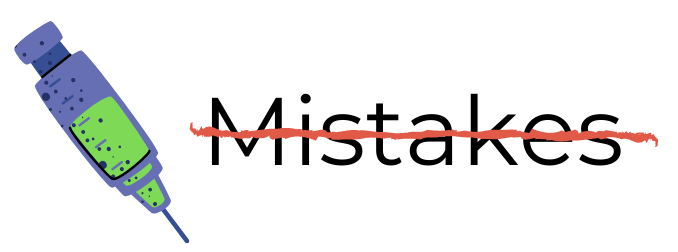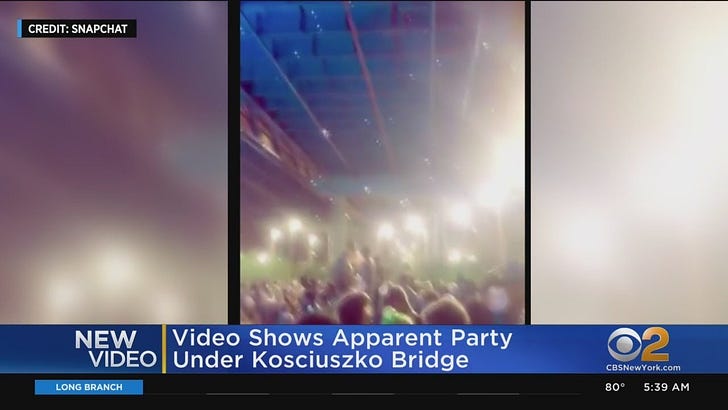Greetings from an undisclosed location in my hotel room.
It has been 261 days since the first documented human case of COVID-19.
Housekeeping note:
No in-depth today; just some headlines on various topics.
Glossary terms are bolded words with links to the running newsletter glossary.
If you like what you see—or what you might see in the future—tell others about it so the newsletter continues to grow:
Now, let’s talk COVID.

Are some people protected against SARS-CoV-2?
Sanjay Gupta writes about the possibility that some folks already have a preexisting level of protection against SARS-CoV-2: https://www.cnn.com/2020/08/02/health/gupta-coronavirus-t-cell-cross-reactivity-immunity-wellness/index.html
This article has a very good walk-through of how immunity works, and some influential folks who I’ve looked to as experts in the past are quoted. It’s based on a review paper (a summary of other research) that appeared here: https://www.nature.com/articles/s41577-020-0389-z
But I’ll summarize quickly: some researchers have identified that there is a small amount of immune reactivity against SARS-CoV-2 in blood samples collected before the pandemic. This is not evidence of prior infection, but instead evidence that a different infection—probably with a human coronavirus—creates some “cross-reactivity” among immune responses to this virus. This is not unexpected; coronaviruses are a related family and they share some features that the immune response might react to.
What’s unclear is the effect of this cross-reactivity; does it do nothing? Does it help fight the virus? Does it make the disease course worse? There are differing possibilities. For example, older people, who have been exposed to many more infections with human coronaviruses throughout their lives, tend to get sicker—is their severe illness from SARS-CoV-2 infection related to a preexisting but useless immune response, while the mild symptoms seen in children are because they do not have that long history?
Or, do some people have less severe disease because they have gotten infected with the “right” human coronavirus, and somehow this is protective against COVID-19?
I don’t have answers, but the question are fascinating and I am eager to see them investigated. Not only could it help us to treat COVID-19, but it could help us down the road when new SARS-CoV strains appear, as I expect them to do.
Ed Yong’s autopsy of the American COVID-19 failure
A lot of the time it is depressing to be a virologist, especially an emerging disease expert. I am interested in things that many people find horrifying, and there is no good way to spin a disease outbreak. These things are unpleasant and no one enjoys them except the select few of us who have chosen to do research that keeps the world safe. The problem is, a lot of people don’t want to listen to us when times are good, and that leaves us unprepared for when times are bad.
Which is why I am sharing Ed Yong’s piece from The Atlantic, though I’m sure many will have seen it. Yong has been a consistent, reliable voice who has cut to the core of the issues around COVID-19 throughout the pandemic, and his piece does something we need in assessing why the US has failed so badly to respond to this virus: https://www.theatlantic.com/magazine/archive/2020/09/coronavirus-american-failure/614191/
Specifically, it cuts the BS. In hospitals, physicians have regular “morbidity and mortality” meetings. These are forums to discuss things that have gone wrong leading to bad patient outcomes. They are an attempt to honestly, clinically, and soberly discuss what could have been done better. We need to do that for our COVID-19 response, and Yong is starting that conversation in this in-depth feature. He says:
Despite its epochal effects, COVID‑19 is merely a harbinger of worse plagues to come. The U.S. cannot prepare for these inevitable crises if it returns to normal, as many of its people ache to do. Normal led to this. Normal was a world ever more prone to a pandemic but ever less ready for one. To avert another catastrophe, the U.S. needs to grapple with all the ways normal failed us.
He is right. We need to listen and prepare for what is coming next. Perhaps in doing so we can avert the worst consequences of what is already here.
Other diseases aren’t over
Writing in the New York Times, Apoorva Mandavilli, who is rapidly becoming one of my favorite journalists, writes about an issue near and dear to me—infectious diseases in the developing world. Specifically, tuberculosis, HIV, and malaria. With supply chains disrupted due to the pandemic, and healthcare resources diverted, these constant public health issues persist and worsen:
https://www.nytimes.com/2020/08/03/health/coronavirus-tuberculosis-aids-malaria.html
Party under the Kosciuszko Bridge
This is an example of what not to do:
I really don’t know what these people were thinking. Infections may be lower in New York right now, but this isn’t safe and people still die here of the virus every day. This is the kind of thing that interferes with our ability to get rid of this virus.

What am I doing to cope with the pandemic? This:
Vacation
Couple of nice things today; a hike through Taughannock Falls State Park, which is a giant gorge with waterfalls:

Not my most flattering angle, I know. But what a view!
And some writing in a little gazebo by a pond:

I’m not sharing this to brag about my vacation; I want to show that it’s possible to get away in a fashion that’s socially-distant. We didn’t leave New York, we’re not really going out in a way that’s close to other people, but we’re still having a great time. I’m sure there’s some place near you where something like this is possible, and I recommend trying it if you can. It’s a nice way to remember the world is still there.

Join the conversation, and what you say will impact what I talk about in the next issue.
Also, I welcome any feedback on structure and content. I want this to be as useful as possible, and I can only make that happen with constructive comments.

This newsletter will contain mistakes. When you find them, tell me about them so that I can fix them. I would rather this newsletter be correct than protect my ego.
Though I can’t correct the emailed version after it has been sent, I do update the online post of the newsletter every time a mistake is brought to my attention.
No corrections since last issue.
See you all next time.
Always,
JS




On the note of socially distanced and relatively safe vacations, my family and I have been exploring state and national parks near my home in Maryland. We've been hiking the C&O Canal Trails, and recently we took a weekday trip to a beach in a state park along the Chesapeake Bay. The Chesapeake beaches tend to be less crowded in general than our seaside beaches, and since it's in a park there's no restaurants, mini-golf, etc etc, just parkland. We also went on a Monday right before a hurricane was scheduled to come up the coast (and were even able to watch the storm's approach across the bay -- don't worry, we left well before it reached us)
I think for me personally, the hardest part has been that I'm sheltering in place with my parents, and much as I love my parents, I'd desperately like to see someone who isn't them. I'm trying to see if I can't organize a responsible and properly distanced kayak trip on the Potomac with friends, where five of us each rent an individual sea kayak. I'm hoping that masks, open air, and enforced distancing by way of "we're in freakin boats" could create a safe way to get out and about with people.
I would like to thank you for your blog. Not only is it useful, it is also comforting to find that sources of unbiased fact-based, apoliticial, non-divisive information are still available, and that people like yourself are willing to make the effort to produce it.
Having said that, I would like to make an observation. This is not in any way a criticism or a suggestion, as I do not have a useful suggestion to offer. I have lived through a number of traumatic events, including 9/11, Superstorm Sandy, and surviving COVID-19 after nine days in the hospital. I have come to recognize PTSD in myself. I now notice that as I leave shul each morning, I feel relief and calm, having completed a "normal" daily ritual during these "abnormal" times. At that moment, I have subconsciously put aside thoughts of all the stressors that now surround us. Then, I light up my phone, and see your daily post in my Inbox. That causes an immediate, though minor, panic attack, as your helpful blog unfortunately reminds me that things are not normal. Then, I get a grip, force myself to open the email, and read your post. It always starts off with your "Greetings from an undisclosed location in my ..." That tiny bit of humor is really helpful, and, for some reason, I am still not tired of it. I then go on, and read your informative and helpful missives.
I am not asking you to respond to or act on this. I just wanted you to know.
Another aspect of my PTSD is that I tend to spend an unacceptable amount of time responding or commenting to posts and articles. For example:
Regarding "Ed Yong's autopsy of the American COVID-19 failure"
Although Yong makes a number of very valid observations, he unfortunately loses some credibility points by using about half the article as a platform to passionately (using a number of very non-objective adjectives) attack the Trump administration's handling of the pandemic, while ignoring previous administrations' culpability for critical issues such as defunding of critical medical equipment stockpiles (though, he does mention stockpiles as a general issue), or state and local governments' failures. Yong points to the excessive length of time it takes to produce a vaccine, but fails to mention the likely successes of the Trump administration's "Operation Warp Speed". I am not a fan of Trump, but it would be nice (and much more helpful to society in general) if people with valid information and advice would stick to the science, and avoid the politics. That is one of the really nice things about your blog. (I hope this comment is not seen as political or divisive).
Yong also loses some credibility by jumping on the currently fashionable "systemic racism" bandwagon. There is no question that Black communities suffered from the pandemic disproportionately. The author makes an excellent argument that long past systemic racism contributed to the current suffering. However, he fails to make a factual or scientific case that systemic racism exists today and is a substantive contributing cause to the pandemics disproportionate effect on Black communities.
Finally, I take issue with the author's claim that "Diagnostic tests are easy to make". I admit they are easy to make (putting aside supply chain issues), however, as we have seen, they are not easy to make accurate or indicative of useful information, nor are they easy to process in a timely manner once administered on a large scale (see an earlier post of yours).